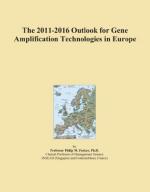|
This section contains 512 words (approx. 2 pages at 300 words per page) |

|
Polymerase chain reaction is a technique in which cycles of denaturation, annealing with primer, and extension with DNA polymerase, are used to amplify the number of copies of a target DNA sequence by more than 106 times in a few hours. American molecular biologist Kary Mullis developed the idea of PCR in the 1970s. The idea was conceived while he was cruising in a Honda Civic on Highway 128 from San Francisco to Mendocino, California. For his ingenious invention, he was awarded a Nobel Prize in 1993.
PCR amplification of DNA is like any DNA replication by DNA polymerase in vivo. The difference is that PCR produces DNA in a test tube. For a PCR to happen, four components are necessary: template, primer, deoxyribonecleotides (adenine, thymine, cytosine, guanine) and DNA polymerase. In addition, part of the sequence of the targeted DNA has to be known in order...
|
This section contains 512 words (approx. 2 pages at 300 words per page) |

|


